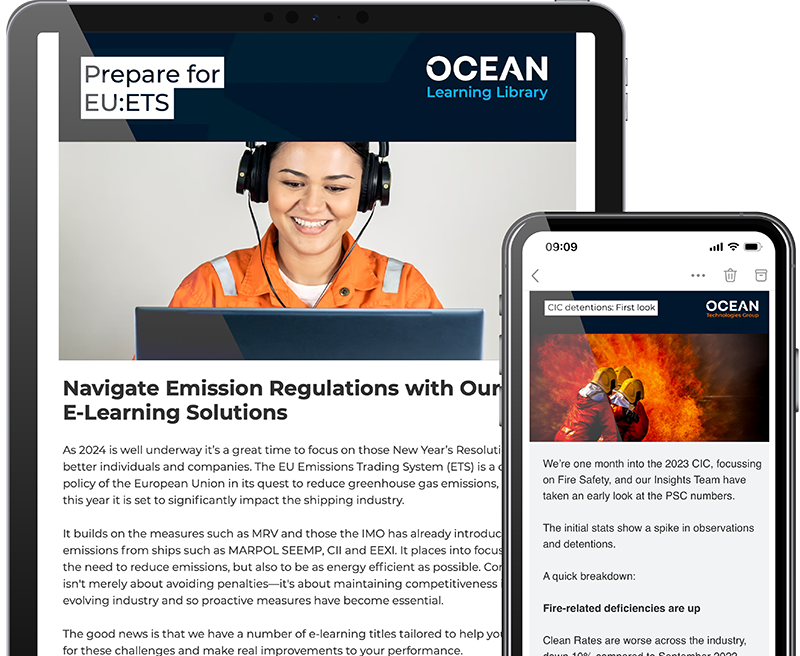Crew Connect Global 2024: Shaping the Future of Maritime Crewing and Training
Crew Connect Global 2024: Shaping the Future of Maritime Crewing and Training
Crew Connect Global 2024 brought together maritime professionals, thought leaders, and innovators to discuss the critical challenges and opportunities facing our industry.
As one of the premier events in the maritime calendar, Crew Connect is a hub for collaboration, learning, and shaping the future of crewing, training, and maritime human capital management.
This year’s themes reflected the pace of change, with training standards, digitalisation, and decarbonisation taking centre stage. Across three packed days, the conference sparked valuable discussions, raised pressing questions, and provided key insights into the path ahead for maritime professionals and organisations alike.
Key Themes and Takeaways
Training Standards: Preparing for the Future
One of the most discussed topics at this year’s event was how to adapt training for the future. With the comprehensive review of STCW underway and the industry adopting more sustainable practices and new technologies, speakers stressed the importance and urgency of setting training standards that don’t just meet compliance but actively prepare seafarers for tomorrow’s challenges.
The Maritime Just Transition Taskforce shared updates on new fuels training for seafarers, and reports highlighted recommendations for aligning training standards with the IMO’s sustainability goals. A central question emerged: “How do we train for something that doesn’t exist yet?” The answer lies in modernising curricula, introducing future-focused competencies, and ensuring soft skills such as leadership and adaptability are prioritised.
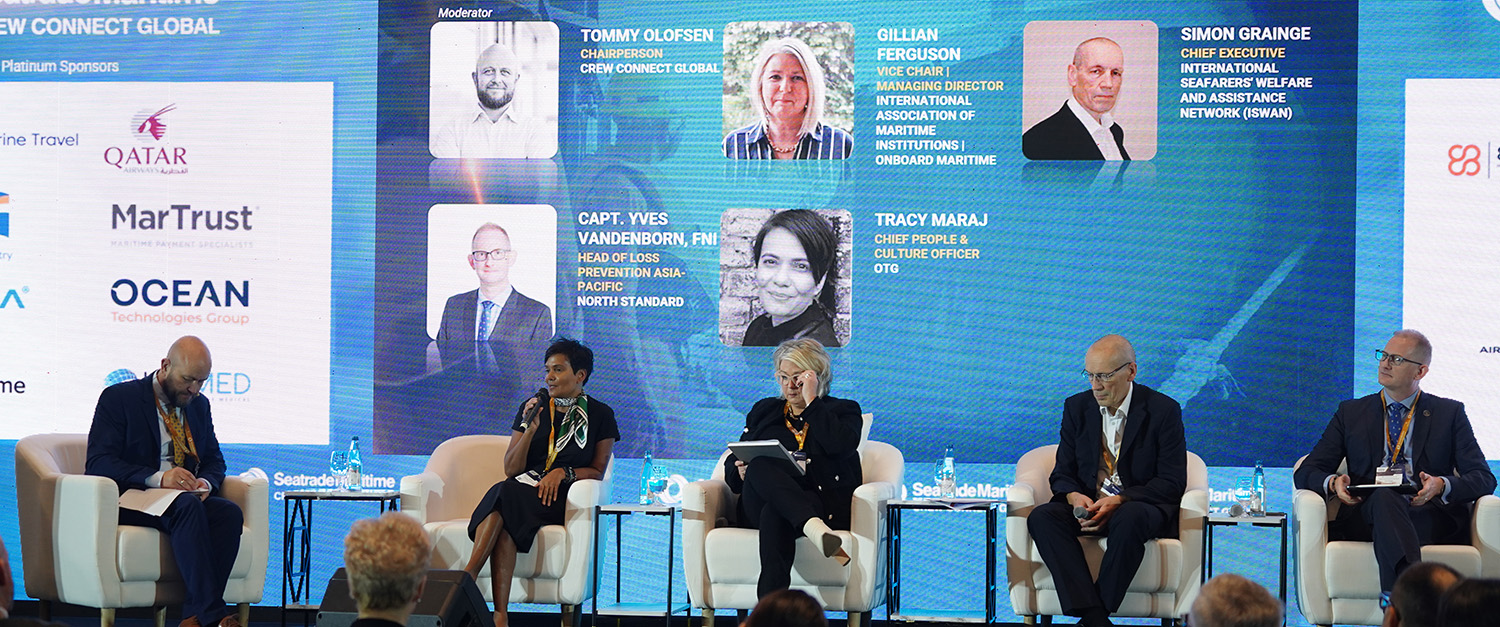
Digitalisation and the Role of AI
Artificial intelligence was a hot topic throughout the event. In a lively parliamentary-style “Big Debate,” speakers explored whether AI will transform crewing and the role of seafarers. While the motion was carried in favour of AI’s transformative power, the conclusion left room for thought: tools may evolve tasks, but the role of humans remains essential
AI’s potential in maritime training was also highlighted in a case study delivered by the Cadet Taskforce from the Maritime Academy of Asia Pacific (MAAP), particularly AI’s ability to simplify complex concepts and improve learning outcomes when used in a blended approach alongside traditional teaching methods. As technology continues to reshape the maritime landscape, the need for forward-thinking, technology-enabled training has never been greater.
The Human Element: People at the Heart of Shipping
The critical role people play in the success of the shipping industry was a constant theme throughout the conference. Keynotes from Hans Leo Cacdac of the Department of Migrant Workers and Sonia Mallaluan, Administrator of MARINA, reminded attendees of the resilience and value of seafarers.
Updates on activity in the Philippines highlighted progress in supporting the rights of seafarers, including the modernisation of the National Maritime Polytechnic and the enshrining of seafarers’ rights in law through the Magna Carta.
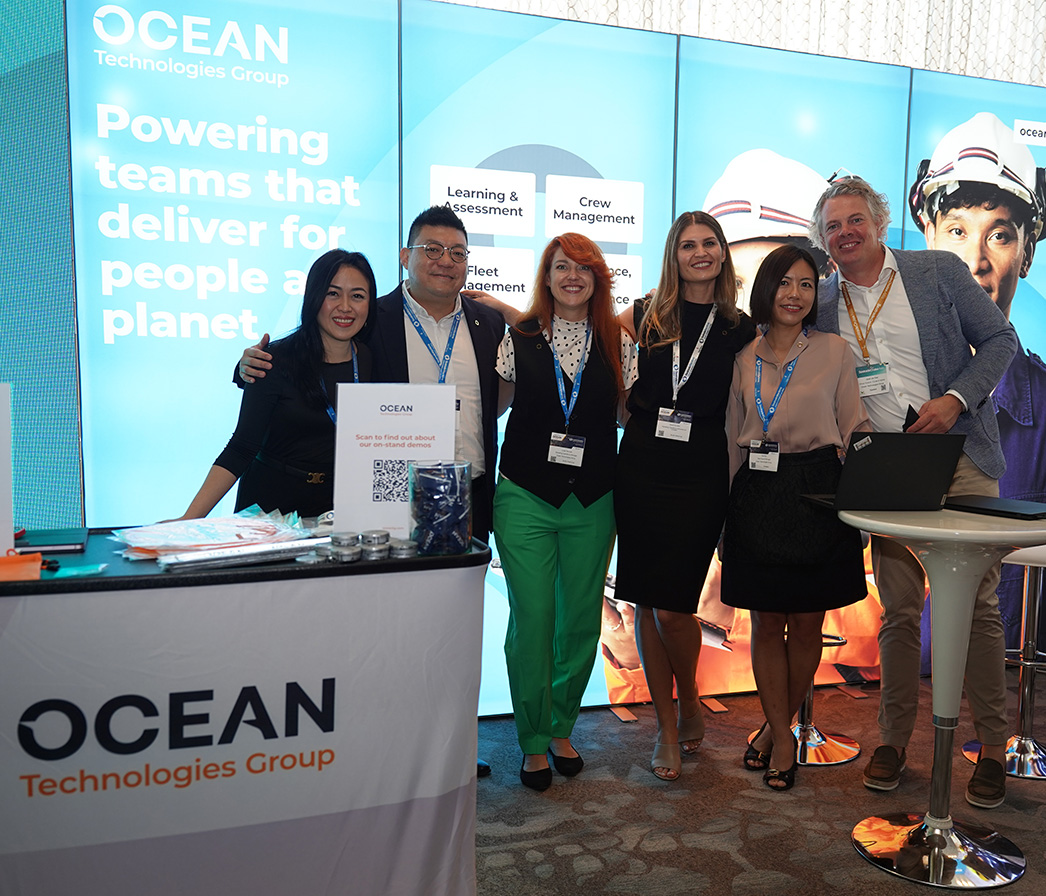
From discussions on improving the image of crewing to addressing the diversity, equity, and inclusion gap, the message was clear: shipping’s future depends as much on its people as it does on its technology.
OTG at Crew Connect Global
We were proud to be part of this year’s event as a long-standing sponsor. We actively participated in shaping the conversations that matter most, with our team contributing to panels on training standards, human capital management, and the future of maritime education. Raal Harris, Joost van Ree, and Tracy Maraj shared insights into preparing for decarbonisation, aligning competencies with industry needs, and navigating the opportunities and challenges of AI in training.
At our stand, the OTG team demonstrated the breadth of our solutions – including demos of new data visualisation tools for training teams, alongside our industry-leading learning content and assessment tools for recruitment and crew development. Over the three days, we engaged with stakeholders from across the maritime ecosystem, reconnecting with long-standing partners and forging new relationships. It was a privilege to see how our solutions align with the industry’s needs and to share ideas on how we can collectively move forward.
The OTG bar became a central gathering point, where informal conversations often turned into deep discussions about the future of maritime crewing and technology. It’s this kind of engagement, both formal and informal, that makes events like Crew Connect Global so valuable.
The Future
Crew Connect Global isn’t just an event; it’s a reminder of what makes this industry extraordinary. It’s a place where ideas are exchanged, challenges are tackled head-on, and solutions are collaboratively built. This year’s edition reinforced the need for ongoing dialogue and innovation to address the complex challenges facing maritime crewing and training.
For us, the event reaffirmed our mission: to empower the maritime industry with tools and resources that enhance learning, improve crew management, and support people throughout their careers.
We’d like to extend our thanks to the organisers, speakers, and everyone who participated in making Crew Connect Global 2024 such a success. Now it’s time to take the conversations we’ve had and turn them into action.
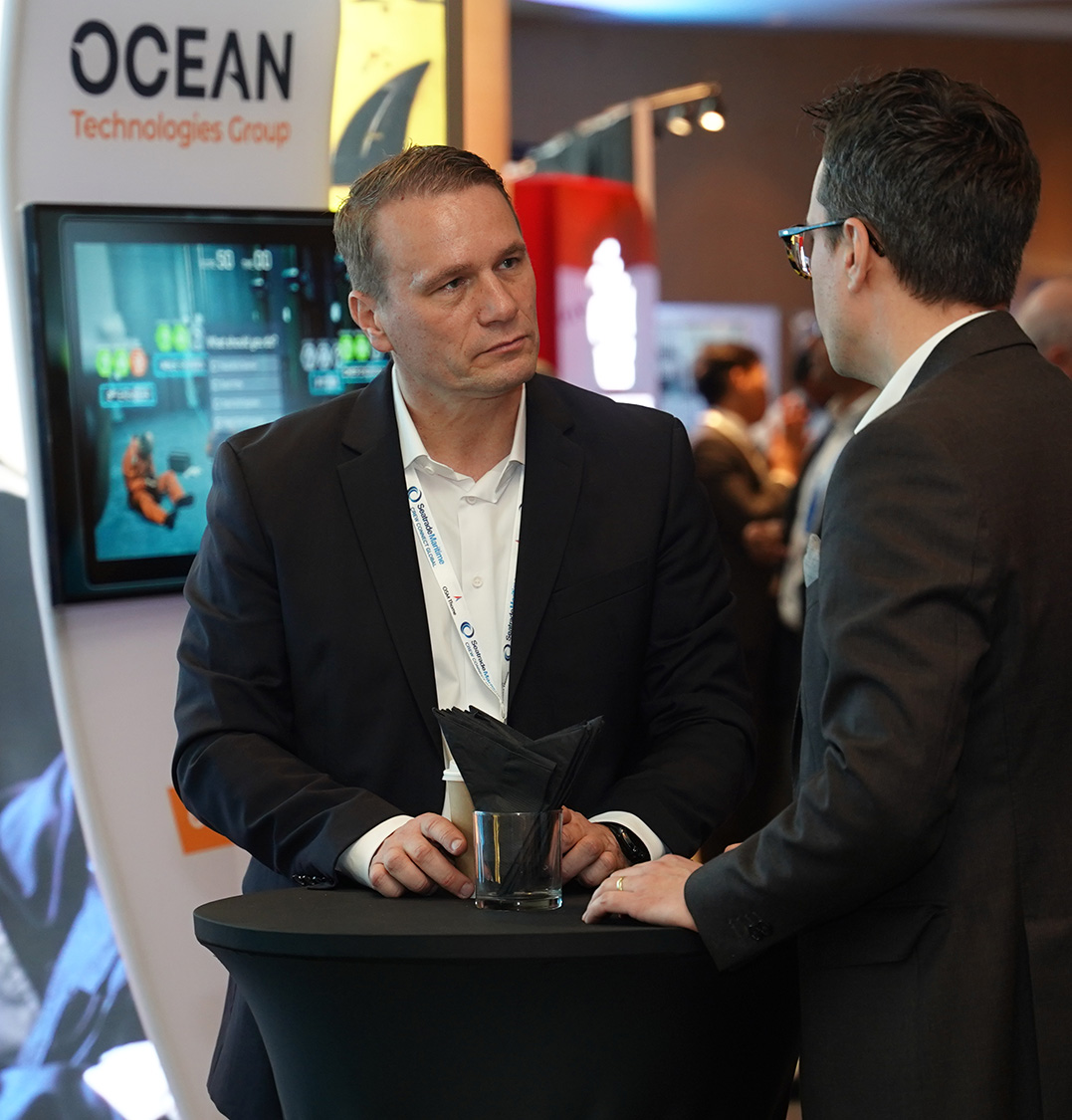
If you would like to explore how we are shaping the future of maritime training, reach out or discover our latest solutions.
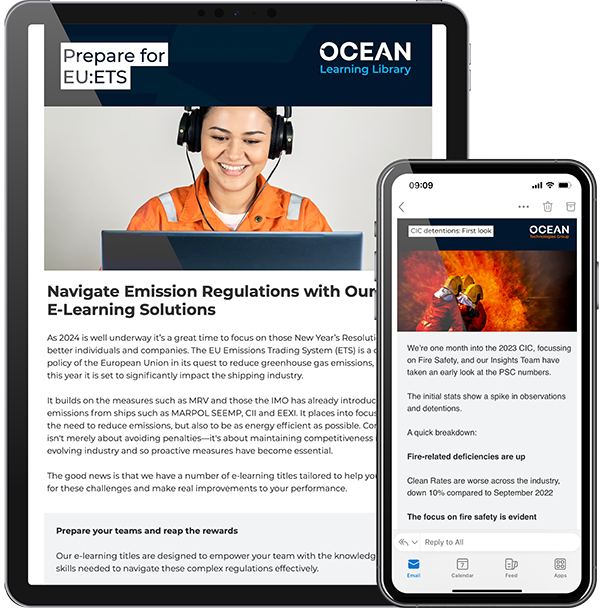
Want to be first to hear all our news?
Subscribe to our Newsletter to keep up to date!
